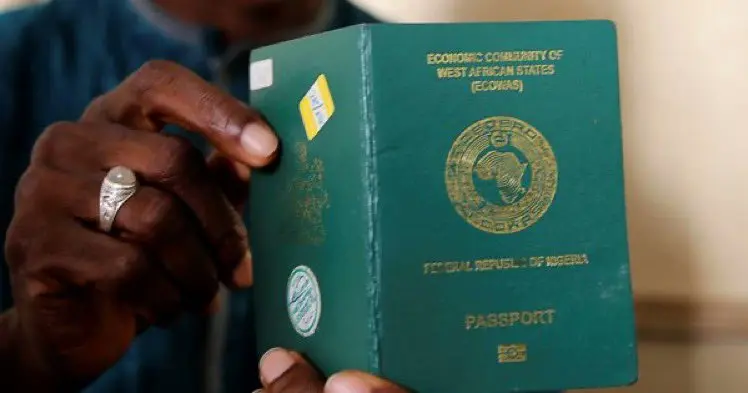Embarking on international travel is an exciting prospect, but it comes with its own set of considerations and preparations. For Nigerian passport holders, navigating the world is an opportunity to explore diverse cultures, landscapes, and experiences. In this comprehensive guide, we delve into essential travel tips tailored for Nigerians, covering everything from documentation and cultural sensitivity to currency advice and health considerations. Whether you’re a seasoned traveler or planning your first international trip, these insights will help you embark on your global adventures with confidence.

1. Documentation Tips
a. Passport Validity
- Check Expiry Date: Ensure your passport is valid for at least six months beyond your planned return date.
- Renewal: If your passport is nearing expiration, consider renewing it well in advance of your travel.
b. Visa Requirements
- Research: While some countries are visa-free for Nigerians, others may require visas. Research and understand the visa policies of your destination.
- Application Process: If a visa is required, start the application process early to allow for any unexpected delays.
c. Travel Insurance
- Coverage: Consider obtaining travel insurance that covers medical emergencies, trip cancellations, and other unforeseen events.
- Policy Details: Understand the coverage details, including medical coverage abroad and emergency evacuation.
d. Emergency Contacts
- Embassy Information: Keep a list of emergency contacts, including the contact information for the Nigerian embassy in your destination.
- Local Emergency Numbers: Know the local emergency numbers of the country you are visiting.
2. Currency and Banking
a. Local Currency
- Familiarize Yourself: Research and familiarize yourself with the local currency of your destination.
- Currency Exchange: Locate reputable currency exchange services or ATMs for convenient cash withdrawal.
b. ATM Usage
- Notify Your Bank: Inform your bank about your travel plans to avoid any issues with using your ATM or credit cards abroad.
- ATM Locations: Identify ATMs in your destination for easy access to local currency.
c. Credit Cards
- Accepted Cards: Check if your credit cards are widely accepted in the country you’re visiting.
- Notify Issuer: Notify your credit card issuer about your travel plans to prevent any unexpected holds.
d. Budgeting
- Plan Your Expenses: Create a budget for your trip, including accommodation, meals, transportation, and activities.
- Emergency Fund: Have a contingency fund for unexpected expenses or emergencies.
3. Cultural Sensitivity
a. Research Local Customs
- Cultural Norms: Research and respect the cultural norms and customs of the destination.
- Dress Code: Be mindful of dress codes, especially when visiting religious or conservative areas.
b. Language
- Basic Phrases: Learn a few basic phrases in the local language to enhance communication.
- Translation Apps: Utilize translation apps for easy communication, especially in areas where English may not be widely spoken.
c. Local Etiquette
- Greetings: Learn about traditional greetings and gestures to show respect to locals.
- Dining Etiquette: Understand local dining etiquette to avoid unintentional cultural faux pas.
d. Photography Guidelines
- Ask for Permission: In some cultures, it’s polite to ask for permission before taking photographs, especially of people.
- Respect Sacred Sites: Avoid taking photos in sacred or religious sites where it may be prohibited.
4. Health Considerations
a. Vaccinations
- Check Requirements: Research and check if vaccinations are required for your destination.
- Visit a Travel Clinic: Schedule a visit to a travel clinic to ensure you have the necessary vaccinations.
b. Prescription Medications
- Carry Essentials: Pack essential prescription medications in their original containers.
- Travel with a Copy: Carry a copy of your prescriptions and a note from your doctor, especially for controlled substances.
c. Health Insurance
- Coverage Abroad: Confirm that your health insurance covers medical expenses abroad.
- Emergency Evacuation: Ensure your insurance includes coverage for emergency evacuation if needed.
d. Stay Hydrated and Rested
- Drink Water: Stay hydrated, especially in warm climates, and avoid consuming tap water in areas with questionable water quality.
- Rest Well: Combat jet lag by getting enough rest before and during your journey.
5. Safety Precautions
a. Secure Your Belongings
- Use Anti-Theft Accessories: Consider using anti-theft accessories such as money belts and secure backpacks.
- Hotel Safe: Utilize hotel safes to store valuables when not in use.
b. Stay Informed
- Local News: Stay informed about local news and events, especially if there are any safety concerns in your destination.
- Travel Advisory: Check travel advisories issued by your government for your intended destination.
c. Emergency Plan
- Share Itinerary: Share your travel itinerary with a trusted friend or family member.
- Emergency Contacts: Keep a list of emergency contacts, including local authorities and embassy information.
d. Local Transportation
- Use Reputable Services: Opt for reputable transportation services and avoid unlicensed taxis.
- Map Apps: Use map apps to navigate local transportation options and routes.
6. Connectivity and Communication
a. International SIM Card
- Roaming Charges: Consider purchasing an international SIM card to avoid high roaming charges.
- Data Plans: Choose a data plan that suits your usage during the trip.
b. Wi-Fi Availability
- Check Accommodations: Confirm that your accommodations offer reliable Wi-Fi, especially if you rely on it for communication.
- Public Spaces: Identify public spaces with free Wi-Fi for additional connectivity.
c. Emergency Communication
- Local SIM Card: In some destinations, a local SIM card may be necessary for emergency communication.
- Emergency Apps: Download emergency communication apps that work without a cellular network.
Conclusion
Navigating the world as a Nigerian passport holder is an exciting and enriching experience. By incorporating these travel tips into your planning, you can embark on your international adventures with confidence and cultural sensitivity. From understanding local customs and ensuring proper documentation to managing currency and prioritizing health considerations, these insights are designed to make your journey smoother and more enjoyable. As you explore new destinations, remember that each journey is an opportunity for personal growth, cultural exchange, and the creation of lasting memories. Safe travels!